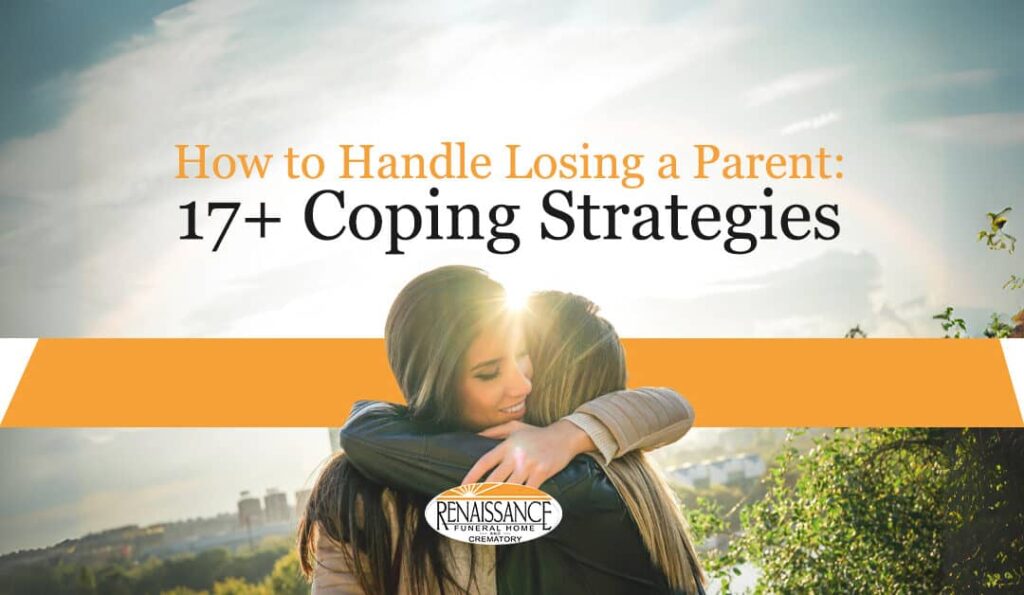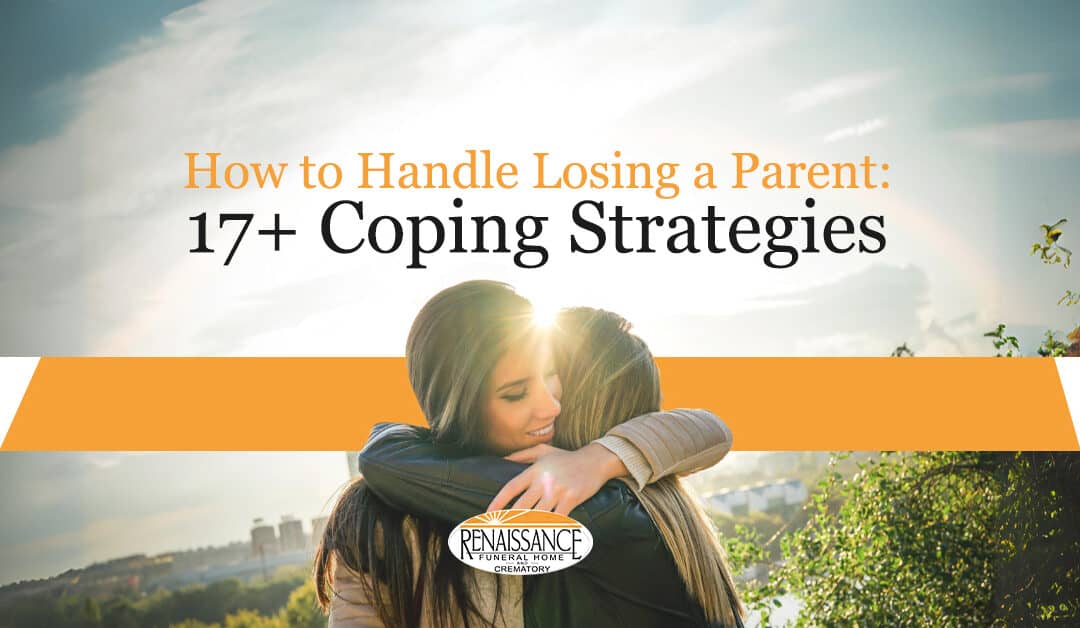
Navigating Grief: Understanding and Coping with the Loss of a Parent
The grief experienced after the loss of a parent is a unique and profoundly personal journey. It’s a pain that touches the core of our being, reshaping our identity and altering our perception of the world. Whether the loss was sudden or anticipated, the emotional impact can be overwhelming. Understanding the complexities of grief, acknowledging its various stages, and adopting healthy coping mechanisms are crucial steps in navigating this challenging terrain. This article provides insights into the multifaceted nature of grief following the loss of a parent, offering practical advice and resources to help individuals cope with their loss and begin the long process of healing.
Understanding the Uniqueness of Parental Loss
The loss of a parent is unlike any other bereavement. Parents are often our first and most influential role models, providers, and protectors. Their absence can trigger a cascade of emotions, from profound sadness and anger to guilt and confusion. The relationship we had with our parent, whether close or strained, significantly shapes our grieving process. For some, the loss may feel like losing a part of themselves, while for others, it may unearth unresolved conflicts and regrets. It’s essential to acknowledge the specific nature of your relationship with the deceased parent to understand the particular nuances of your grief.
Factors Influencing the Grieving Process
- Age and Circumstances: The age of the individual experiencing the loss of a parent plays a significant role. Losing a parent as a child is different from losing a parent as an adult. Similarly, the circumstances surrounding the death, such as a sudden accident or a prolonged illness, can influence the intensity and duration of grief.
- Relationship Dynamics: The quality of the relationship with the deceased parent is a crucial factor. A close and loving relationship can lead to intense sorrow and a sense of profound loss. Conversely, a strained or conflicted relationship can result in feelings of guilt, regret, or even relief, adding further complexity to the grieving process.
- Support System: Having a strong support system of family, friends, or support groups can significantly aid in coping with grief. Social isolation can exacerbate feelings of loneliness and despair, hindering the healing process.
- Cultural and Religious Beliefs: Cultural and religious beliefs often shape how individuals perceive death and express grief. These beliefs can provide comfort and guidance during times of bereavement, but they can also impose certain expectations or restrictions on how grief should be expressed.
Recognizing the Stages of Grief
While grief is a highly individual experience, many people experience similar emotions and reactions. The five stages of grief, as outlined by Elisabeth Kübler-Ross, provide a framework for understanding the emotional landscape of bereavement. However, it’s important to remember that these stages are not linear or sequential; individuals may experience them in different orders, skip stages altogether, or revisit them multiple times. These stages are denial, anger, bargaining, depression, and acceptance.
The Five Stages Explained
- Denial: This stage involves disbelief and shock, often accompanied by a sense of unreality. Denial serves as a temporary defense mechanism, allowing individuals to gradually absorb the reality of the loss.
- Anger: As the reality of the loss sets in, anger may surface. This anger can be directed at the deceased parent, at oneself, at medical professionals, or even at a higher power. Anger is a natural response to pain and frustration, but it’s important to find healthy ways to express it.
- Bargaining: In this stage, individuals may attempt to negotiate with a higher power or with fate in an effort to undo the loss. They may make promises or engage in “what if” scenarios, hoping to regain control over the situation.
- Depression: Depression is characterized by profound sadness, hopelessness, and a lack of interest in activities that were once enjoyable. It’s a natural response to the loss and can manifest in various ways, such as fatigue, changes in appetite, and difficulty sleeping.
- Acceptance: Acceptance is not necessarily about feeling happy or content; rather, it’s about acknowledging the reality of the loss and learning to live with it. It involves adjusting to a new normal and finding ways to move forward while honoring the memory of the deceased parent.
Coping Mechanisms for Dealing with Grief
Coping with the loss of a parent requires a multifaceted approach that addresses both the emotional and practical aspects of bereavement. Developing healthy coping mechanisms is essential for navigating the grieving process and promoting healing. Here are some strategies that can be helpful:
Practical Strategies for Managing Grief
- Allow Yourself to Grieve: Don’t suppress your emotions or try to “be strong.” Allow yourself to feel the sadness, anger, and other emotions that arise. Crying, journaling, and talking to a trusted friend or therapist can help you process your feelings.
- Take Care of Your Physical Health: Grief can take a toll on your physical health. Ensure you’re getting enough sleep, eating nutritious meals, and engaging in regular exercise. Avoid relying on alcohol or drugs to cope with your emotions.
- Seek Support: Connect with family, friends, or a grief support group. Sharing your experiences with others who understand what you’re going through can provide comfort and validation. Consider seeking professional help from a therapist or counselor if you’re struggling to cope on your own.
- Engage in Meaningful Activities: Find activities that bring you joy and purpose, such as spending time in nature, pursuing a hobby, or volunteering. Engaging in meaningful activities can help you reconnect with yourself and find a sense of normalcy.
- Honor Your Parent’s Memory: Find ways to honor your parent’s memory, such as creating a photo album, writing a letter, or participating in a memorial event. Remembering the good times and celebrating their life can help you keep their spirit alive.
- Be Patient with Yourself: Grief is a process, not an event. There will be good days and bad days. Be patient with yourself and allow yourself the time you need to heal. Don’t compare your grief to others, as everyone experiences loss differently.
When to Seek Professional Help
While grief is a normal and natural response to loss, there are times when professional help is necessary. If you’re experiencing any of the following symptoms, it’s important to seek support from a therapist or counselor:
- Prolonged or intense sadness that interferes with your daily life
- Thoughts of suicide or self-harm
- Difficulty functioning at work or school
- Social withdrawal and isolation
- Substance abuse
- Persistent anxiety or panic attacks
- Inability to accept the loss after a significant period of time
A therapist can provide a safe and supportive space for you to process your emotions, develop coping strategies, and work through the complexities of your grief. They can also help you identify and address any underlying issues that may be contributing to your distress.
Finding Hope and Healing After Loss
The loss of a parent is a devastating experience, but it is possible to find hope and healing. By understanding the complexities of grief, acknowledging your emotions, and adopting healthy coping mechanisms, you can navigate this challenging journey and begin to rebuild your life. Remember that you are not alone, and there are resources available to support you. With time, patience, and self-compassion, you can find peace and meaning in the midst of your loss. [See also: Coping with Bereavement] The pain of grief may never completely disappear, but it can transform into a bittersweet reminder of the love and connection you shared with your parent.

